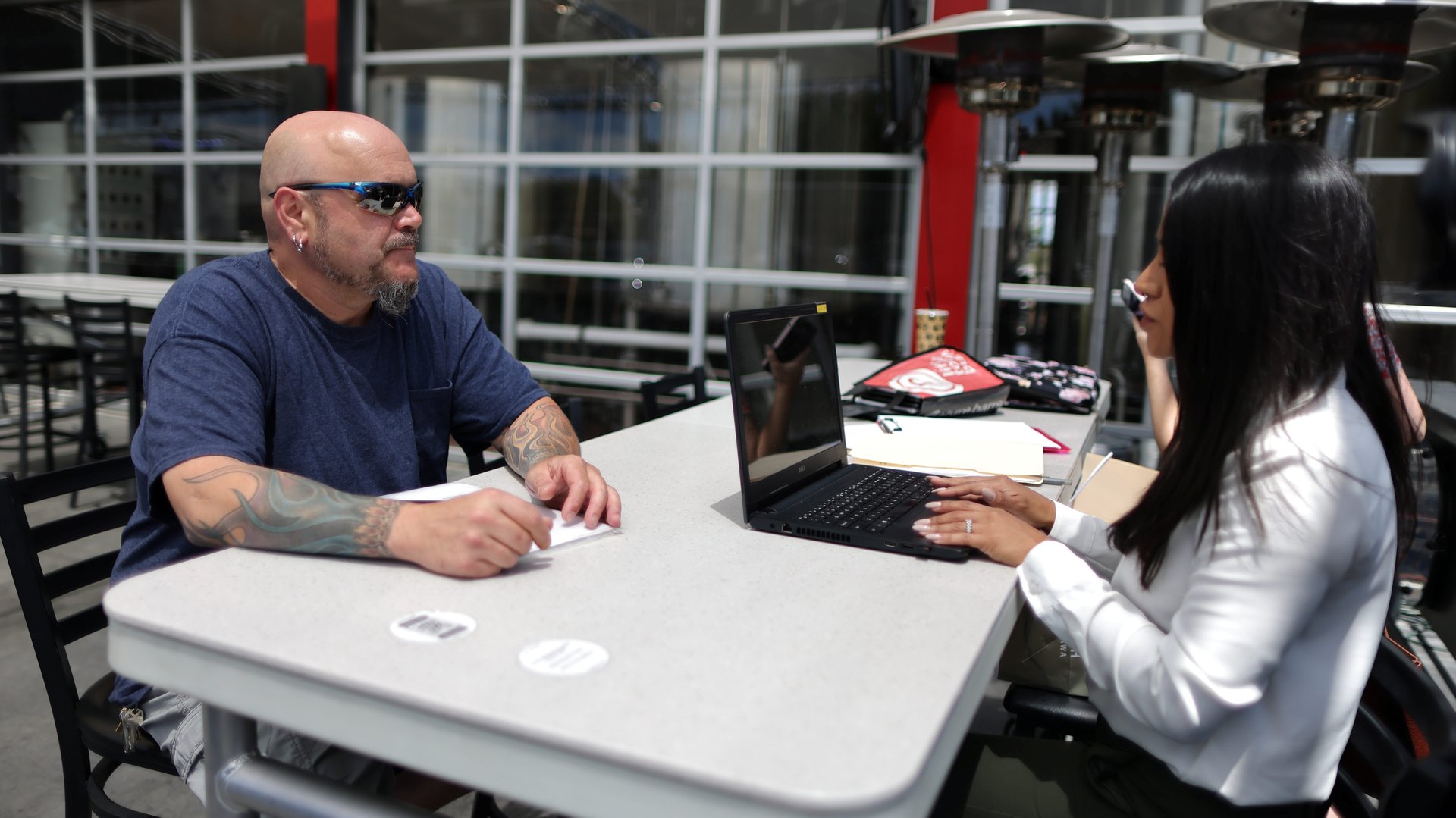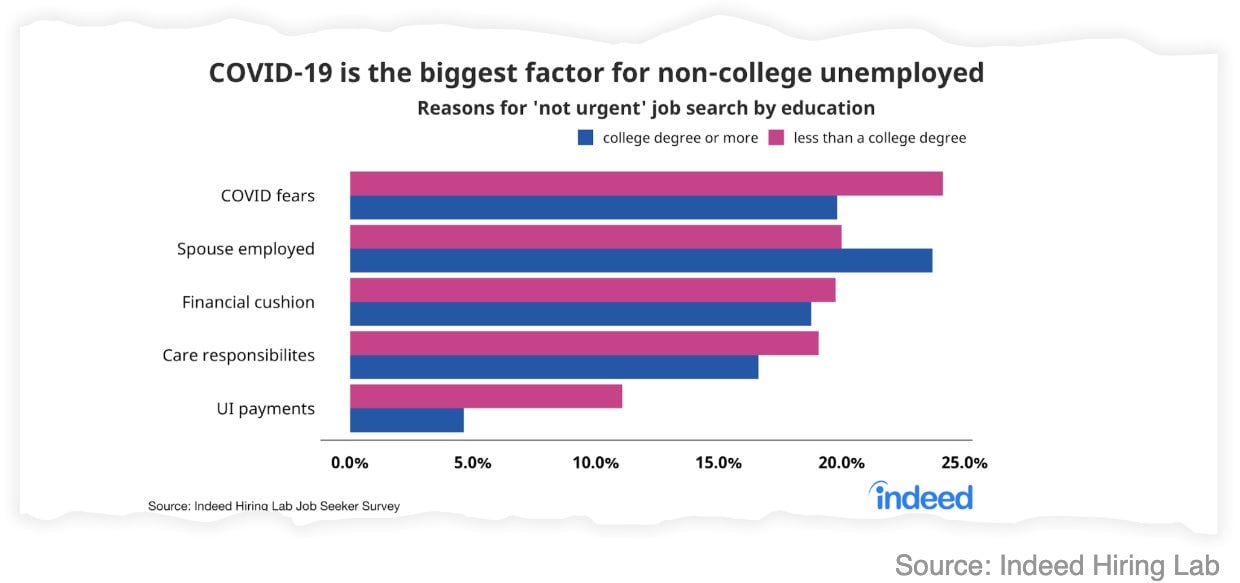Extra unemployment benefits aren’t holding back the US economy
Today’s US jobs report found that 850,000 new jobs were created in June, another sign of the recovery from the pandemic recession.


Today’s US jobs report found that 850,000 new jobs were created in June, another sign of the recovery from the pandemic recession.
This news suggests that worries about expanded unemployment insurance slowing hiring were overblown. The bonus payments to Americans without a job were designed to help those whose employers were forced to close by the virus, but their generosity was seen by some economists and employers as a reason for people to delay returning to work.
The likelier reason for the more disappointing jobs numbers in recent months is, you guessed it, the pandemic. Even this month, 6.2 million people said they weren’t working because “their employer closed or lost business due to the pandemic,” and that is a major improvement since May, when that number was 1.7 million people higher. It’s notable that this week’s largest hiring sector was again leisure and hospitality, most of which—194,000 jobs—were restaurant and bar jobs. The story about a “labor shortage,” it is increasingly clear, was a story about a public health crisis and low wages.
We still don’t have a good empirical comparison between states that have ended the bonus benefits early and those that have not. It’s not enough to simply compare changes in state joblessness without controlling for local factors. For example, in Missouri, where benefits ended early, the unemployment rate has fallen slightly faster than the US at large—but the state has had less than 5% unemployment since last fall, a figure economists once considered “full employment.” That suggests unemployment insurance has little to do with Missouri’s labor market.
Instead, we should look to other data that gives us a sense of why prospective workers are making the choices they do. Economists at Indeed, the job search website, have been surveying job-seekers about their behavior. One consistent finding is that unemployment benefits are low on the list of reasons why someone is waiting for a job—and worries about the pandemic are the top reason for not finding one yet:

Why bonus unemployment benefits have a tiny effect on hiring
We do have some careful evidence from last year that also suggests expanded unemployment benefits shouldn’t slow hiring by much. A new study by economists at the Federal Reserve Bank of San Francisco examines data gathered about workers in 2020 after the CARES Act increased unemployment insurance by $600 a week (the current bonus is $300.)
This bonus gave recipients more income in benefits than they previously earned by working, but the intuition that it also lead them to avoid finding a new job isn’t quite right. That’s because the benefits do, at some point, end, while workers expect to stay at a job for almost two years. By carefully matching data about workers and employers collected by surveyors, the economists found that most workers would take a job that pays less than UI, particularly as benefits approach their end.
What does that mean this year? The researchers offered a rough projection: “One straightforward way to think about that number is that each month in early 2021, about seven out of 28 unemployed individuals receive job offers that they would normally accept, but one of the seven decides to decline the offer due to the availability of the extra $300 per week in UI payments.”
It’s hard to make the case that this cost outweighs the benefits of getting cash to families who couldn’t work during a public health crisis, or even the productivity increases that come when workers find the right employer to match their skills. It is, however, an argument for smarter approaches to unemployment benefits, including hiring bonuses and automatic adjustments to local economic conditions, as part of a broader reform agenda for the creaky but vital program.